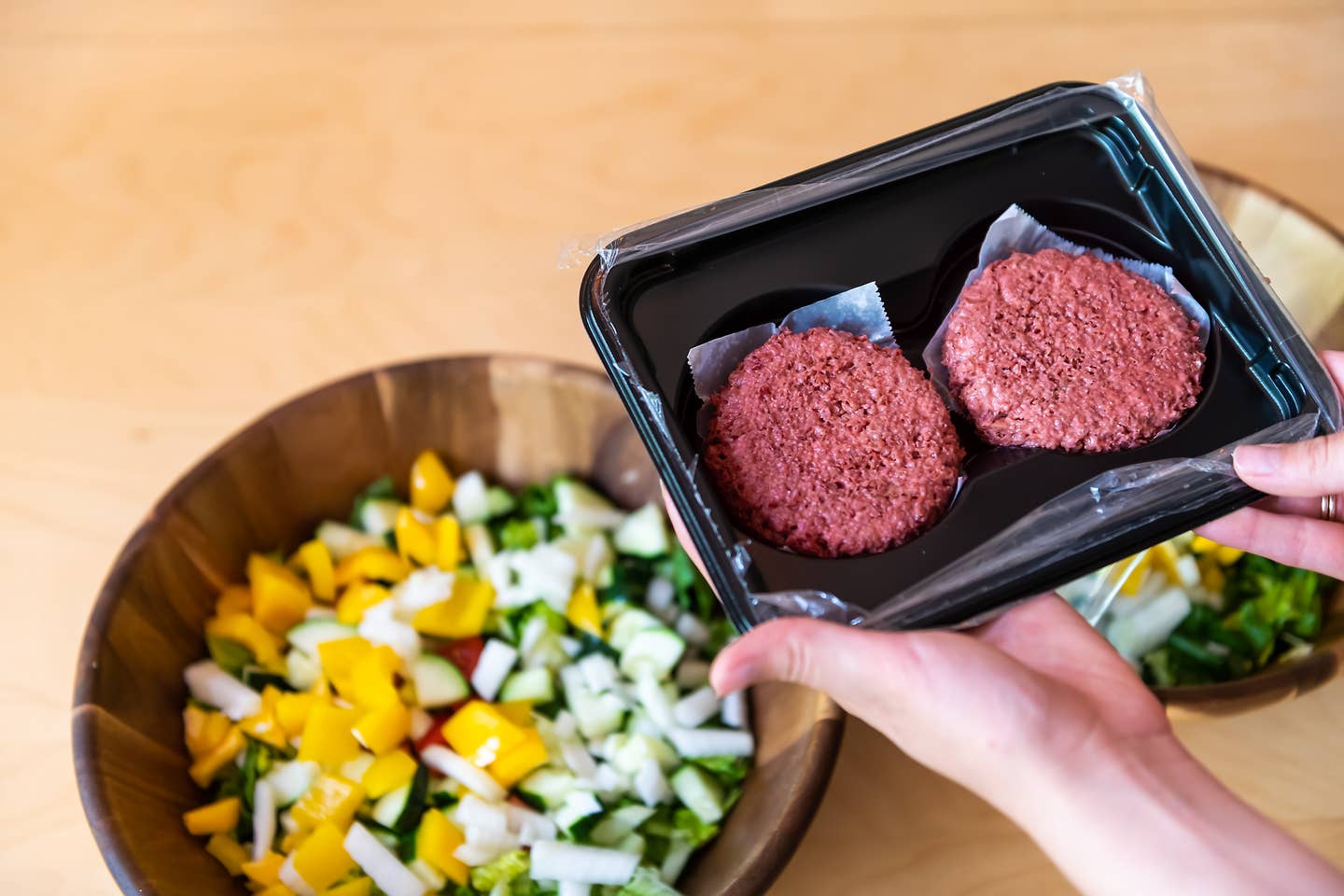
The EU Votes to Allow Vegan Meats to Be Called “Burgers” and “Sausages”
The meat and dairy industry continues to fight against plant-based companies using terms such as burgers, milk, or sausage on product labels in both the U.S. and U.K. Now, the U.K. members of the European Union Parliament have rejected an amendment that would ban terms such as “burgers” and “sausages” on products that don't contain meat.
EU Rejects Amendment 165
Amendment 165 was first introduced to lessen purported confusion about meat-related terms on vegan and vegetarian products. “We are unsurprised but delighted that MEPs have rejected cynical attempts by the protectionist meat industry to hinder the marketing of plant-based proteins in the EU. Their preposterous claims that consumers would be confused by the use of names such as burgers, sausages, schnitzels, and mince on clearly labeled vegetarian meat substitutes, have been rightly rejected as disproportionate nonsense,” said Joanna Swabe, Senior Director of Public Affairs for Humane Society International.
Amendment 165 is a part of an agricultural package of measures that also includes Amendment 171 which seeks to extend existing restrictions on dairy-related terms. Terms like “almond milk” and “vegan cheese” are already banned to be put on products in the EU, but Amendment 171 wants to restrict other common terms such as “yogurt-style” and ‘cheese alternative” from being on products. Many companies including IKEA, Beyond Meat, and Unilever sent an open letter to the EU trying to encourage them to reject both Amendment 165 and Amendment 171. The letter stated that the amendments “are disproportionate and out of step with the current climate.”
Some Argue Consumers Are Not Confused by Vegan Alternatives
ProVeg International, a global food awareness organization created a petition to oppose Amendment 165 and Amendment 171 and it gained more than 270,000 signatures.
“Consumers are in no way confused by a soy steak or chickpea-based sausage, so long as it is clearly labeled as vegetarian or vegan. Terms such as ‘burger’ or ‘steak’ on plant-based items simply make it much easier for consumers to know how to integrate these products within a meal,” explained Camille Perrin, the senior food policy officer at the European Consumer Organization.
Even though Amendment 165 was rejected, a success for many vegan alternative food options, Amendment 171 was supported and as a result has upset vegans, vegetarians, and non-dairy brands alike. “It is inconceivable to us just how the European Parliament could take such a different position on such similar proposals. Although the ban is supposedly intended to prevent consumer confusion, it is clear it does nothing for consumers except confuse them,” said Jasmijn de Boo, Vice President of ProVeg International.
Only a well known and loved oat-based non-dairy brand has spoken out about the EU decision to support Amendment 171. As stated in an Oatly Instagram post, “Amendment 171 which will make it illegal for plant-based foods to be compared to dairy products in the future. This means we can no longer call our products milk-free or talk about any of the health and environmental advantages they offer.”
More From The Beet






